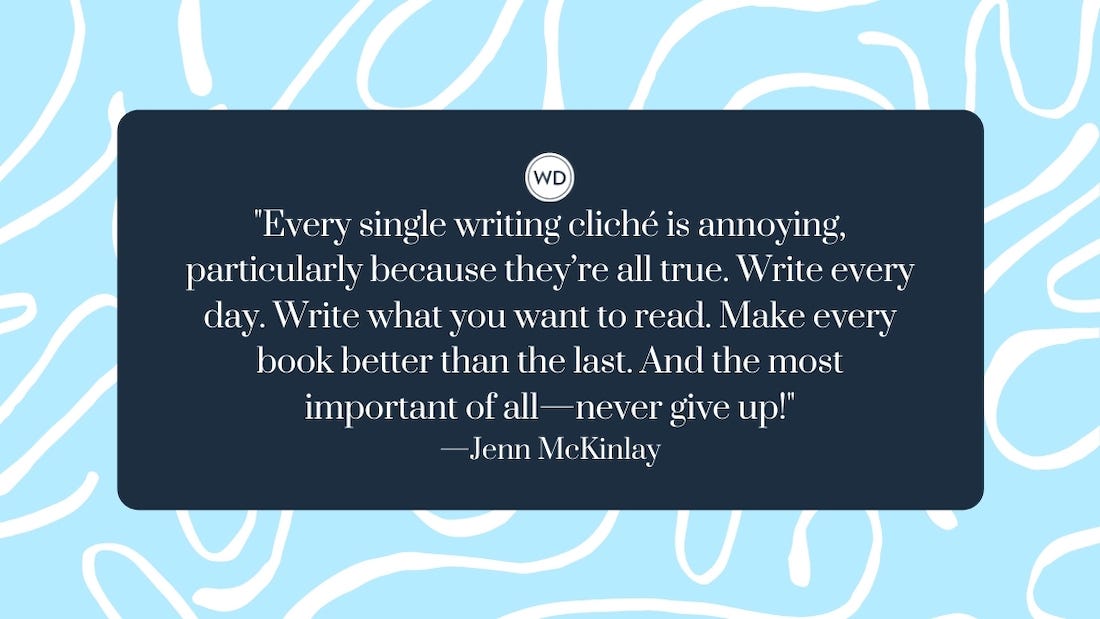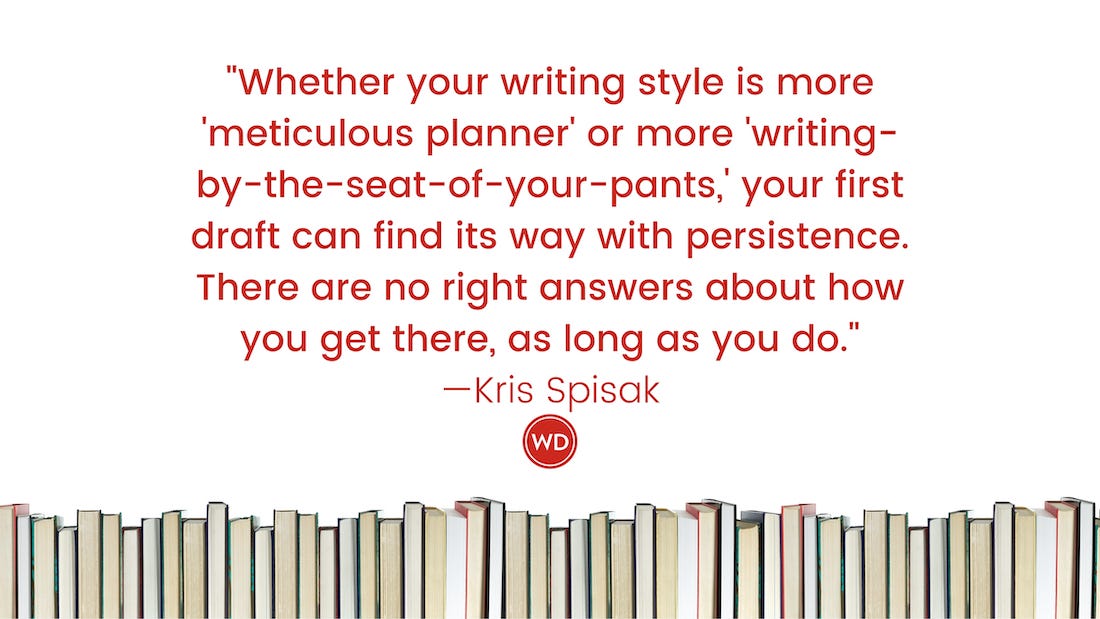How to Break the Rules & Get Published
If you stay true to your voice, this successful romance writer says, you’ll find those rules aren’t etched in stone.
"You need to know the rules. You need to understand them. Then you need to forget them." So says Harlequin Temptation Editor Susan Sheppard. Deliberately breaking out is vastly different than bumbling in the wrong direction.
The "rules" we've all heard so much about are not really rules at all. They're gentle guides that you need to be aware of, but not necessarily conform to, especially when they fall in direct opposition to your natural voice. When handled with skill and talent, breaking the rules is one of the best ways to distinguish yourself.
I wrote 10 complete manuscripts before selling one. I tried to follow the rules and continually got rejections. I wrote my 10th story (Impetuous, Harlequin Temptation) on gut instinct rather than preconceived notions, and the initial reward was contest judges who rated the work horrendously low. When an editor visiting a local conference delivered the news that book No. 9 was being rejected, I mentioned the nonconforming book. The editor suddenly looked more enthusiastic and said, "That is something that just might work for us."
The book was risque, with a hidden identity/secret fantasy theme delivered with more explicitness than was typically found in category novels at that time. The editors approved, and my second book for Temptation, Outrageous, again written without thought for the rules, launched the Temptation Blaze subseries of more explicit, sensual books, and my career finally took off. I not only found my niche; I helped create it.
What are the rules?
Just about everyone has heard the dozens and dozens of rules listed as the criteria for getting published in romance. They include no hopping from one character to another's head, one point of view per scene, no exotic settings, no athletes or television personalities. In truth, there are very few definite rules. One, of course, is the happy ending. Readers pick up a romance novel to find the satisfaction that comes from a happy ending. Another is that the romance be between a man and a woman.
No first person? Well, Karen Harbaugh, a writer for Signet Regencies, says, "With my first two books, I wrote plain vanilla Regencies because I felt moved to write them. Those were published despite the fact that the first one was in first person, which my contest judges told me would never sell." Note this was for her first book, so we can't fall back on the cop-out that an established writer can break the rules!
There's also Joan Wolf's recent single title releases, The Deception, The Guardian, The Arrangement, The Gamble and The Pretenders, as well as Megan Chance's A Season in Eden and Anne Stuart's Cameron's Landing, all done in first person.
What about those highly taboo sports heroes? We need look no further than the incredibly successful and incomparably humorous Susan Elizabeth Phillips, who has managed to get nonsports-minded women to fall in love with jocks in general and football players in particular. Hebby Roman's Summer Dreams has a minor league baseball hero, and Tami Hoag's Straight From the Heart also has a baseball-playing hero.
The conclusion, of course, is that what really sells your book is your individual voice, not the rules you obey or break.
Voice vs. marketing
It's a common problem in the publishing industry—voice vs. marketing. How much should an author bend to sell her book? If an editor insists it must be changed, what can an author do? I've withdrawn books rather than make requested revisions that would change my voice.
Karen Harbaugh, known for her Vampire Regencies, says, "Voice always comes naturally to people, once they have the tools to express it. That's what voice is. For me, it's how my creative mind works. My natural bent seems to be toward the spiritual or toward fantasy; it was there when I grew up—I was raised with it. And of course, because I like it so much and also have an analytical mind, I like to know why it is, and how it works, and so I take it apart. What I learn gets put back into my writing, and I think my writing might just be richer for it. I know what voice is, what my voice in particular is, and I can look at other people's writing and say, yep, there's your voice, right there."
When explaining some of the difficulties she first faced, Harbaugh says, "My first two Regencies were with HarperCollins when they had a Regency line. They wouldn't take any that had fantasy elements in them, and in fact, I was asked to take it out. Then my agent sent two others to Signet (Penguin/Putnam) and those sold ... within a week of submitting them to the editor, in fact. The difference was that Signet Regency's editor had the authority to take risks, whereas HarperCollins's editor didn't, so far as I can tell."
Jennifer Crusie, a highly successful author currently with St. Martin's Press, says, "I never thought, Gee, there aren't too many people doing romantic comedy so I'll write romantic comedy.' In the beginning, I didn't even know I was writing romantic comedy. The last three books I've finished haven't been comedies at all, so I'm always amazed (and delighted) when people say they laughed. I'm just trying to get the truth on the page, my vision of the truth in my voice."
Anne Stuart is a grandmaster of the genre, winner of a Romance Writers of America's Lifetime Achievement Award and a survivor of more than 25 years in the romance business. "If I have a niche," she says, "it's a combination of my gothic background and my over-the-top heroes—many of them are, by average standards, immoral, some are lethal, most of them with a questionable set of values. A lot of my books are very dark, almost impossibly so for some readers, but for those who can handle it, the rewards are considerable."
Can one aspect of an author's writing define her? "Yes and no," Stuart says. "The dark, dangerous hero and the strong, almost gothic sense of place will probably always be integral to my work. But there's a lot of creative space involved around such things. And actually, a hidden aspect to my work has always been familial issues. Not as obvious to the casual reader, but it's an ongoing theme and I expect I'll keep up with that too. I have a sense of humor that people often don't expect. It's dark humor, but effective."
In some instances, Stuart was forced to make drastic career changes, but she refused to change her voice. "In the middle of my career, during some of the Harlequin years, I had to tone down some of my books. One of my historicals was toned down a bit too—the editor wanted the hero softer, I wanted him darker—and I simply ended up rewriting him (and the story) in a third way. At this point, I doubt I would do it. Even back then I tried to buy the books back when I couldn't particularly afford to do so. If an editor and I disagreed strongly on the direction of a book or a character, then I would either buy the book back or come to an agreement to write a different book in its place. I have a brain brimming with wonderful ideas—if I can't do one right then, I'll find something else we can agree on."
Crusie adds, "Sharp humor is my life, as anyone who's ever been stuck with me in an elevator or at a dinner knows. I have no desire to write Deeply Serious Books. Probably because I'm not deep. I write black comic community-based mystery romantic women's fiction. Lot of space to grow there."
Every writer's goal is to grow. I first sold to Harlequin Temptation in 1996 and since have sold 30 novels to five different publishers. Whether I'm writing a single title, a novella or a series book, I want readers to know it's me. I've been incredibly fortunate that the editors I've worked with have understood my style. But if I had to put up a fight, it would be over voice, not so much over advances and time frames. Yes, I want to grow in all areas, but I believe if the voice is there, the rest will come.
What about those rules? Harbaugh says, "Forget 'always' and 'never' and 'ever.' There is such a thing as art and rhythm and using your ear to figure out what works and what doesn't. There comes a time when you have to look at the art, and that always means bending or breaking the rules, to use them in a way nobody else has thought to try before."
Bend away! And good luck on finding your niche.
Want to write better romance scenes and develop stronger characters? Consider:
On Writing Romance
Become a WD VIP and Save 10%:
Get a 1-year pass to WritersMarket.com, a 1-year subscription to Writer's Digest magazine and 10% off all WritersDigestShop.com orders! Click here to join.
Also check out these items from the Writer's Digest's collection:
Writer's Digest You Can Write A Romance
Writer's Digest No More Rejections
Writer's Digest The Wealthy Writer
Writer's Digest The Craft & Business Of Writing
Writer's Digest Weekly Planner
Writer's Digest How to Land a Literary Agent (On-Demand Webinar)
Writer's Digest Magazine One-Year Subscription
Writer's Digest 10 Years of Writer's Digest on CD: 2000-2009
Lori Foster is a prolific romance novelist, regularly seen on the best seller lists.









